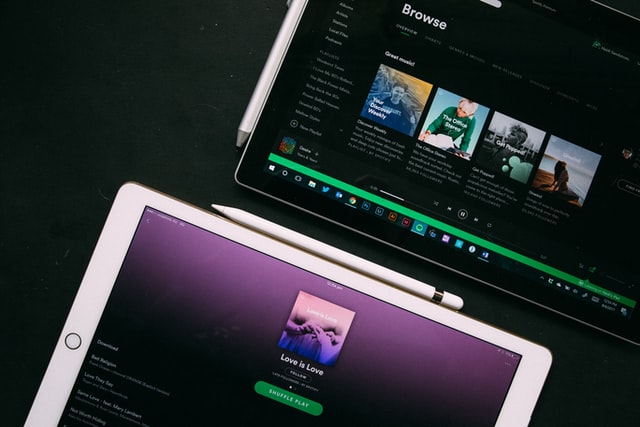Can Spotify Maintain its Lead in 2021?
Spotify is the leading music streaming platform with a decent-sized gap over its closest competitor Apple Music. It is making moves to consolidate its position, attract new users, and try to turn ad-supported users into subscribers. Also, it is attempting to diversify its offerings so it’s not totally reliant on music streaming.
The music distribution industry – streaming, buying, selling – is competitive. Many major tech companies have a stake in it: Google (via YouTube), Amazon (via Amazon Music), and Apple. There’s also Tidal, Deezer, and Qobuz. Not to mention the likes of SoundCloud and Bandcamp. Resonate is a newly launched service which is “owned by the people” so consumers and artists can reattach value to the product and themselves in what they label as a more ethical system by operating a stream-to-own model – utilising blockchain too, which hints at what might come to the market and shake it up in the future. Spotify exists within a ballooning industry which it essentially helped balloon.

Attempts to Diversify
As mentioned, Spotify wants to diversify. Its huge user base is primarily interested in music, obviously. They flock to the site/app to stream the latest Lil Nas X single, Ariana Grande album, and/or Drake EP. However, to further grow as a company, they deemed it fit to look elsewhere. If a company is solely focused on and successful in one area then it can lead to a major drop if a competitor heats up or if the market instigates certain changes which can’t be contended with, but, also, it allows them to appeal to more customers. For example, online casinos offer live casino, bingo, and even sports betting in addition to traditional games like online slots – the core of their service. All this leads to a more interesting product – and existing, loyal, and eager customers often want to see what else they can do.
Spotify settled on podcasts, which Apple had begun to foster (though with little-to-no real focus or conviction) and Amazon have also launched into. The podcast industry has itself seen huge growth in the last few years, spurring on these interests. Content creators have delved into them. Again, like Spotify, for them, it’s another avenue for revenue. Podcasts give the chance to monetize in two ways: via subscriptions and via advertising. As for consumers: they allow them to multitask; they’re easily accessible; they’re versatile and, also, intimate and personal; they’re community building.
While Apple’s and Amazon’s podcast service is separate from their music streaming services, Spotify have integrated theirs into one app. They’ve also signed creators to exclusive deals so their content appears only on their platform – notably, Joe Rogan’s The Joe Rogan Experience.
Listening Habits and New Tech
The listening habits which surround podcasts are different to music streaming: the bulk of the total listening hours for podcasts are attributed to a small percentage of the total audience. Podcasting relies on a devoted audience. But the upside is they’re devoted, so, in theory, they should be consistent.
There were rumours of Spotify trying to develop hardware too – speakers, digital-assistant-supported hubs, and tech of this kind. That, though, hasn’t materialised as yet.
As mentioned above, the likes of blockchain technology and its incorporation into music distribution via stream-to-own models as well as non-fungible tokens may well see changes to how consumers view music and ownership. Whether or not this will only see changes at Spotify’s very edges, its margins, remains to be seen, especially as there is a lot of resistance to blockchain tech.
Spotify, for now, has its eyes firmly set on its immediate competitors and itself.